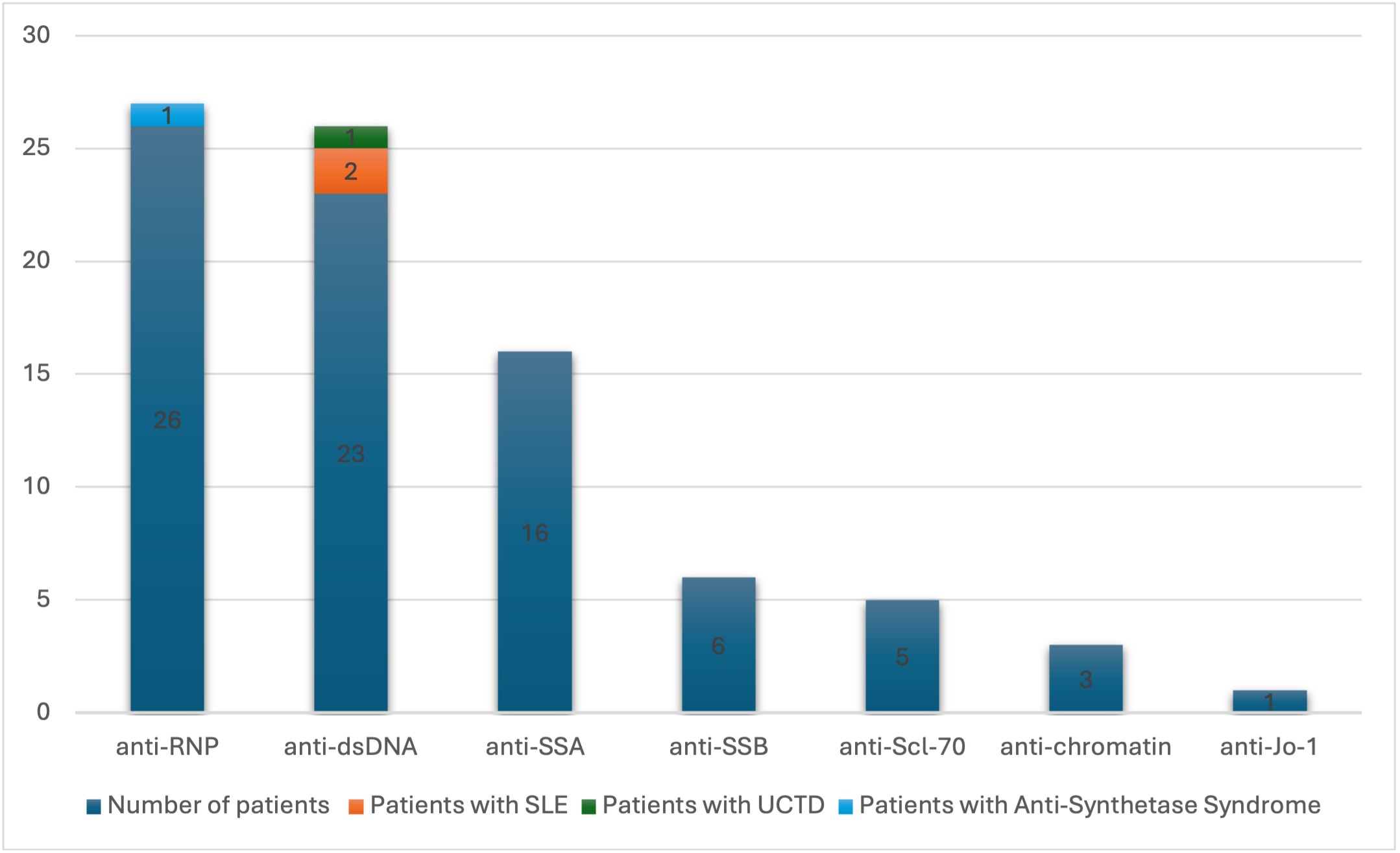Session Information
Session Type: Poster Session C
Session Time: 10:30AM-12:30PM
Background/Purpose: On the basis of consensus methodology and literature review, the ACR has recommended that antibodies to extractable nuclear antigens (ENA), also known as subserologies not be performed in patients who test negative for antinuclear antibodies (ANA) by indirect immunofluorescence assay (IFA). Only a single study has addressed this issue specifically. We have investigated this question further with longer term follow-up and independent review of diagnoses.
Methods: The patient population included all individuals who tested negative for ANA and positive for ENA within 30 days, and who were assessed by a rheumatologist at least once between April 2015 and April 2024. ANA tests were performed locally by IFA and considered positive if the titer was ≥ 1:40. ENA tests were conducted by LabCorp using a multiplex assay for antibodies against dsDNA, RNP, Sm, SSA, SSB, Scl-70, Jo-1, and chromatin, with positivity determined by LabCorp’s criteria. The same assays were used consistently throughout the study period. Clinical diagnoses were made by one of ten Board Certified rheumatologists and independently verified through electronic medical record reviews by a second rheumatologist.
Results: Out of 4,462 patients who had an ANA test and were evaluated by a rheumatologist, 1,594 had an ENA test performed. Among these, 72 patients had a positive ENA and a negative ANA by IFA within 30 days. The positive ENA results included 26 with anti-RNP, 23 with anti-dsDNA, 16 with anti-SSA, 6 with anti-SSB, 5 with anti-Scl-70 (anti-Topo I), 3 with anti-chromatin, and 1 with anti-Jo-1. Among the 72 patients who were ENA+ and ANA-, 4 (5.5%) received a new diagnosis: 2 cases of systemic lupus erythematosus (SLE), 1 case of undifferentiated connective tissue disease (UCTD), and 1 case of anti-synthetase syndrome. The remaining 68 patients (94.5%) either had no systemic inflammatory rheumatic disease or had a pre-established diagnosis.
Conclusion: A positive ENA test in patients with a negative ANA by IFA rarely leads to new diagnoses of systemic inflammatory rheumatic diseases and should not be performed unless there is a strong clinical suspicion of a rheumatological disease. Such an approach is consistent with ACR’s previous recommendations and could result in considerable saving of health care resources.
SLE: Systemic Lupus Erythematous; UCTD: Undifferentiated Connective Tissue Disease.
To cite this abstract in AMA style:
Bou Dargham B, Huang J, Luggen M. Clinical Significance of Positive ENA Testing in ANA-Negative Patients: A Retrospective Analysis of Rheumatologic Diagnoses [abstract]. Arthritis Rheumatol. 2024; 76 (suppl 9). https://acrabstracts.org/abstract/clinical-significance-of-positive-ena-testing-in-ana-negative-patients-a-retrospective-analysis-of-rheumatologic-diagnoses/. Accessed .« Back to ACR Convergence 2024
ACR Meeting Abstracts - https://acrabstracts.org/abstract/clinical-significance-of-positive-ena-testing-in-ana-negative-patients-a-retrospective-analysis-of-rheumatologic-diagnoses/

